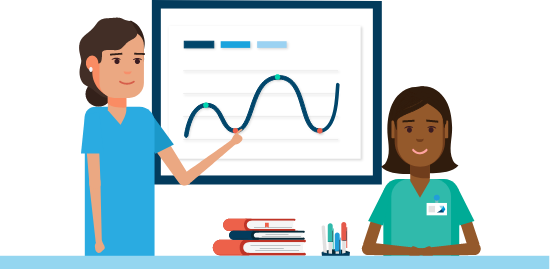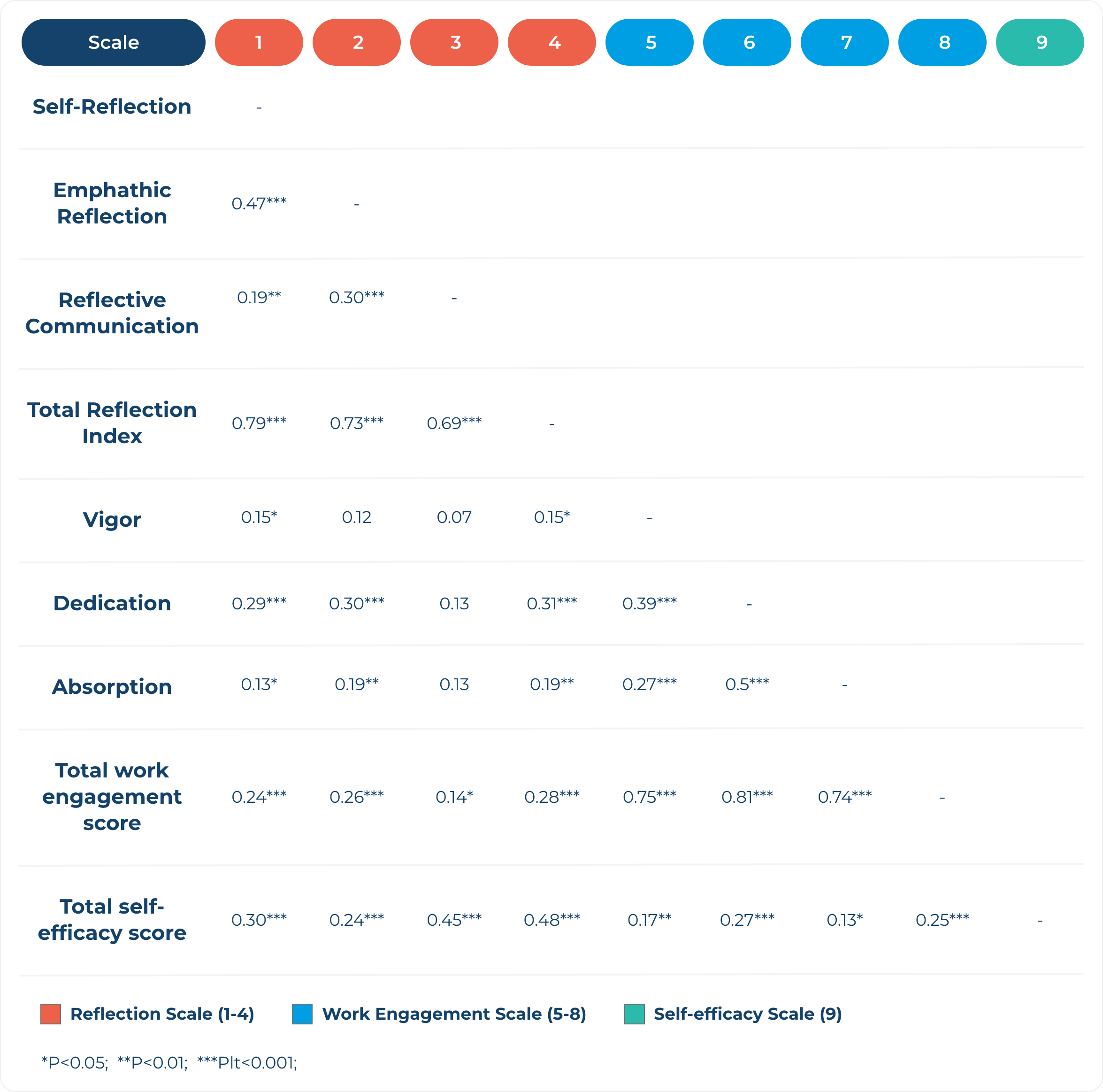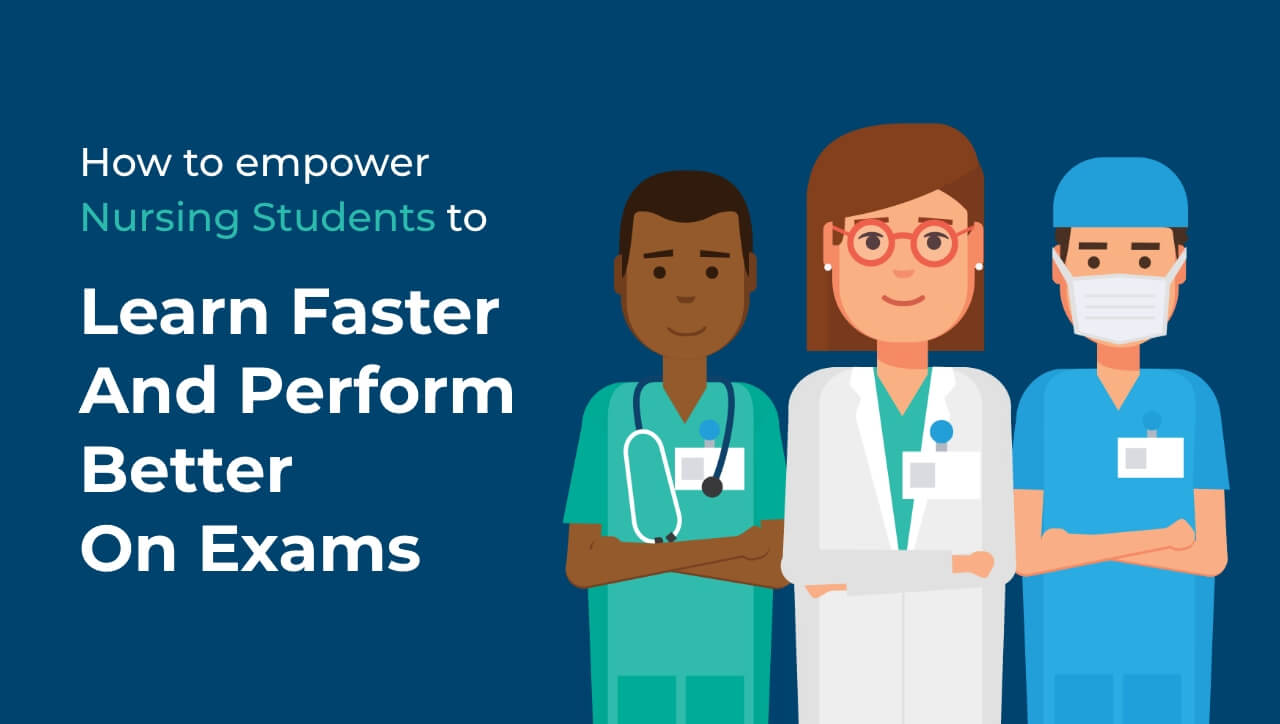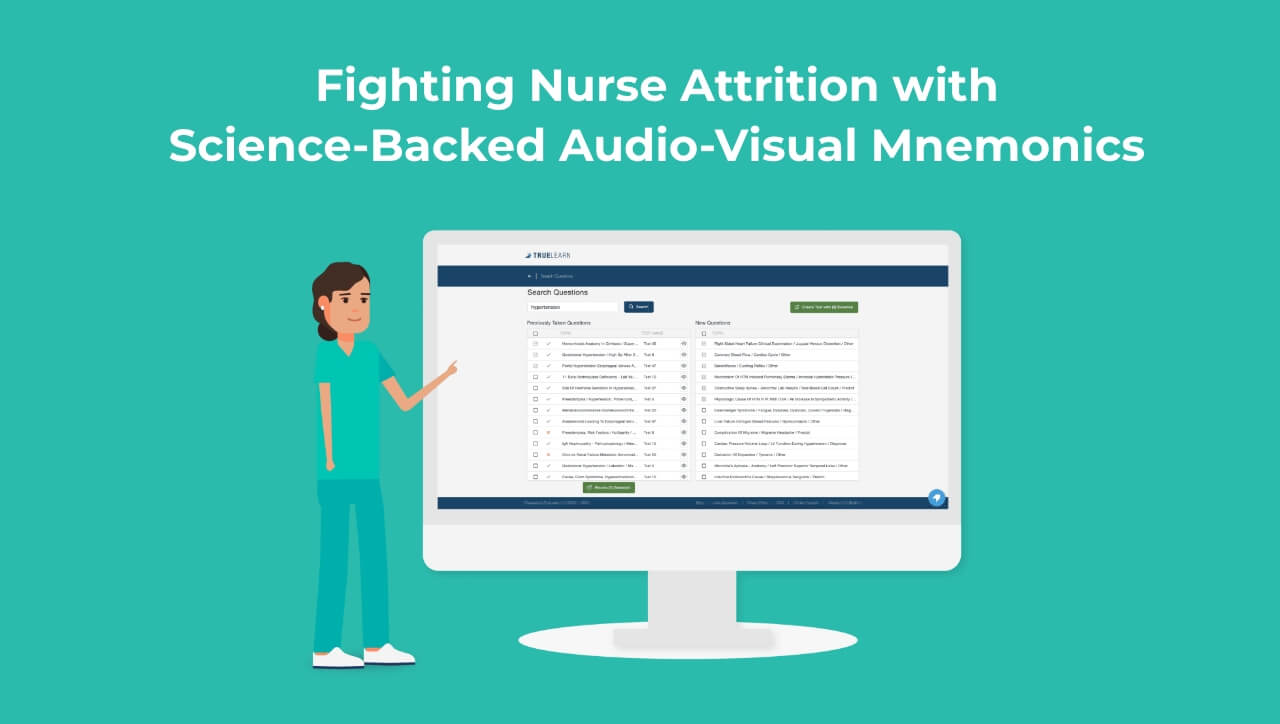Why Self-Reflection Is Critical In Nursing Education—Drive Lifelong Learning and Future Success
As future healthcare providers, nursing students not only need to master a rigorous curriculum and complex concepts but also develop a wide range of clinical skills and knowledge to deliver high-quality patient care. Several characteristics have been identified as key to optimizing nursing care, including self-motivation, positive workplace culture, and a strong enabling leadership.1
Another skill that has emerged as critical in nursing education is self-reflection, which involves accurately identifying and analyzing one’s thoughts, actions, and feelings, requiring cognitive activities such as description, critical analysis, evaluation, and planning. When applied to practice, it improves nurses’ self-efficacy and work engagement2—values that enable high-quality patient care. One study found significant and positive correlations between these three qualities.
For more ways to help your nursing students develop self-reflection, download our Educator Guide: How Educators Can Foster Self-Reflection in Healthcare Learning—and Empower Learners to Become Successful Practitioners

The connection between self-reflection, self-efficacy, and work engagement
Using a stratified random sampling method and inclusion criteria that included holding a bachelor’s degree in nursing and clinical working experience, a total of 240 nurses from seven hospitals were selected for the study.3 Data were collected via three questionnaires: Groningen Reflection Ability Scale (GRAS), Sherer’s General Self-Efficacy Scale (SGSES), and Utrecht Work Engagement Scale (UWES).
Overall, the nurses’ total reflection scores were found to correlate positively and significantly with their work engagement and self-efficacy levels.
Does this suggest that nursing students should be encouraged to cultivate this practice from the start of their program and in clinical settings? Let’s take a closer look at key findings from the study.
Self-reflection
The nurses in the study exhibited a robust reflective practice, as indicated by a relatively high level of reflection—the mean score was 86.51 out of 115. Notably, there was a statistically significant difference in the reflection scores of nurses working in the emergency department (ED) compared to nurses in other departments; ED nurses had a higher mean score.
Why this is important
Self-reflection has an essential role in nursing education and practice: it facilitates the learning of clinical nurses, boosts the quality of care provided, and encourages nurses to search for and discover solutions to difficult situations. Through self-reflection, nurses gain new experiences and insights from both clinical and educational settings. This process helps them develop a sense of ownership over the acquired knowledge, enhancing their expertise and clinical decision-making.4
Self-efficacy
The nurses demonstrated a high level of self-efficacy—60.89 out of 85—and similar to self-reflection, ED nurses had a higher mean score than their counterparts in other departments. Additionally, there was a statistically significant correlation between self-efficacy with age and years of work experience, underscoring the value of experience in building confidence and capability in clinical practice.
Why this is important
The self-efficacy theory is based on the premise that individuals’ beliefs about their abilities positively influence their actions and activities. Nurses with high self-efficacy are more motivated, provide higher quality patient care, and can more effectively overcome challenges due to their enhanced problem-solving skills. When faced with difficulties, these nurses focus on their abilities to find solutions and navigate situations successfully.
Work engagement
The study indicated that the mean work engagement score among nurses was 3.39 out of 6. Engaged nurses are more likely to experience job satisfaction, which can lead to higher retention rates and improved patient care outcomes.
Why this is important
Work engagement refers to an individual’s commitment to their organization or employer and has a positive effect on both employee performance and organizational outcomes. Key variables influenced by work engagement include job satisfaction, organizational commitment, and work performance, and they encompass feelings of vigor and identification with work activities.
Pearson correlation matrix showing the correlation between nurses’ reflection, self-efficacy, and work engagement level

The results of the study indicated a positive and significant relationship between self-reflection, self-efficacy, and work engagement among nurses: the mean score for each rose in tandem with the others. This is consistent with another study that reported high self-reflection scores corresponded with high self-efficacy scores5 while a study on ICU (intensive care unit) nurses6 showed a significant correlation between self-reflection and work engagement.
What Does This Mean for Nursing Education?
Self-reflection brings about many positive consequences for nurses, including supporting the development of lifelong learning habits for optimum personal and professional development; enabling them to deliver better quality of patient care and support; and boosting knowledge, attitude, and practices regarding ethical codes, leading to improved clinical competency.
Thus, self-reflection should be integrated into nursing education so that students can start building these qualities from day one of nursing school and sharpen them across their journey toward licensure and in future practice.
Programs and faculty can help nursing students cultivate self-reflection by pairing learning science-based resources such as Picmonic’s 1,300+ audio-visual mnemonic video lessons and TrueLearn’s NCLEX-style critical thinking questions with self-reflection practices to:
- Get immediate, real-time feedback on performance and comprehension
- Interact meaningfully with the content (active learning), improve long-term retention and ease of recall
- Identify learning strengths and weaknesses, pinpoint areas for improvement
- Track and measure learning progress and exam readiness longitudinally
- Adjust/tailor teaching/study methods for the most effective, efficient learning
Learn more about a partnership with TrueLearn and Picmonic here.
Help your nursing students achieve optimal exam performance and outcomes, read and share this blog with them and encourage them to utilize our free Post-Assessment Self-Reflection Questionnaire!
References
1 King R, Taylor B, Talpur A, et al. Factors that optimise the impact of continuing professional development in nursing: A rapid evidence review. Nurse Educ Today. 2021;98(104652):104652. doi:10.1016/j.nedt.2020.104652
2 Tbzmed.ac.ir. Accessed July 24, 2024. https://jcs.tbzmed.ac.ir/Article/jcs-31920
3 Zarrin L, Ghafourifard M, Sheikhalipour Z. Relationship between nurses reflection, self-efficacy and work engagement: A multicenter study. J Caring Sci. 2023;12(3):155-162. doi:10.34172/jcs.2023.31920
4 Razieh S, Somayeh G, Fariba H. Effects of reflection on clinical decision-making of intensive care unit nurses. Nurse Educ Today. 2018;66:10-14. doi:10.1016/j.nedt.2018.03.009
5 Sundgren MKM, Dawber C, Millear PM, Medoro L. Reflective practice groups and nurse professional quality of life. Aust J Adv Nurs. 2021;38(4). doi:10.37464/2020.384.355
6 Lawrence LA. Work engagement, moral distress, education level, and critical reflective practice in intensive care nurses: Critical reflective practice in intensive care nurses. Nurs Forum. 2011;46(4):256-268. doi:10.1111/j.1744-6198.2011.00237.x


